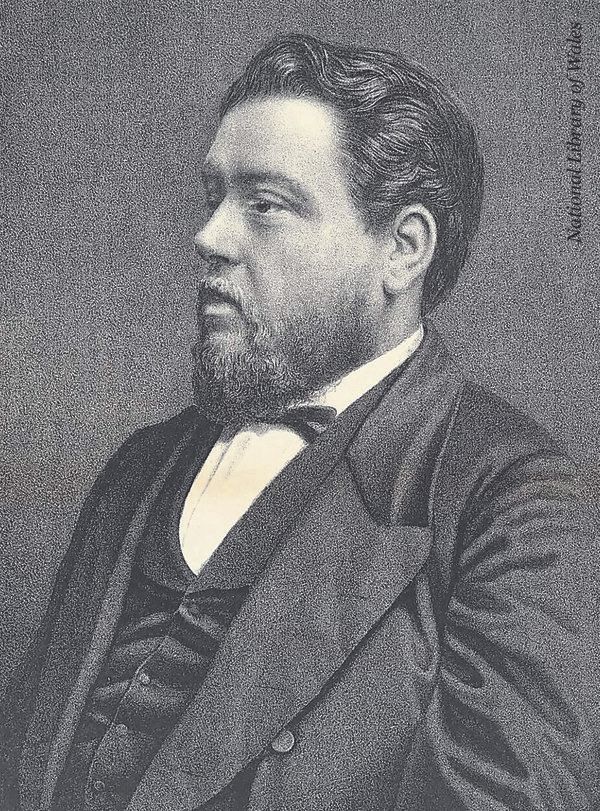
If Dave Hunt is not already familiar to you – after all, he is an internationally best-selling Christian author – he may soon be, if you are Reformed and believe the doctrines of grace.
For Hunt’s latest book What love is this? Calvinism’s misrepresentation of God is likely to be brandished in your face by those who teach any form of free will in salvation (e.g. Pelagians and Arminians).
Attacks on the core theology of the Reformation and its biblical teachings on sovereign grace are nothing new, of course. Why, then, highlight a work such as Hunt’s, which says nothing new and is thoroughly confused in its approach to Reformed theology?
The answer is that we need to be aware, not only of Hunt’s new book, but also of his teachings generally, and the fact that he is seen by many Evangelicals as a ‘champion of Bible-believing Christianity’.
Influence
Hunt rose to prominence in the 1980s with his helpful books The Seduction of Christianity and Beyond Seduction, among others. These books exposed the blatant shamanism, worldly psychology and other fashionable philosophies emerging from largely Pentecostal groups but, sadly, not being publicly opposed by Evangelical leaders.
I have often been told that Hunt is not taken seriously by Evangelical theologians in the USA, but he has nevertheless gained extensive influence among grass roots Evangelicals through his books and ministry.
The problem is that while we quickly learn what Mr Hunt is against, we rarely glimpse what he is for.
Many ministries grow up around personalities in just this way – ministries which issue minimalist ‘statements of faith’ yet hide a plethora of religious foibles and theological novelties.
Attacks
Hunt is a vociferous advocate of dispensationalism, maintaining that spiritual Israel of the New Testament is not the church. This has led him to teach (along with others like Hal Lindsay and Tim Lahaye) the historically novel doctrine of the pre-tribulation rapture of the church.
This alone should alert biblical Christians to Hunt’s theological frailties. Those of us who are familiar with Hunt’s writings (via his nineteen books and Berean Call newsletter) have noticed his increasingly vitriolic attacks on the Protestant Reformers and their teachings.

These occasional forays have now culminated in Hunt’s latest work What love is this? The book itself can only be described as a ‘gloves off, bare knuckle assault’ against Reformed theology and anyone who believes any of the doctrines of God’s sovereign grace.
Pelagianism
Its most savage attacks are reserved for two notable ‘theologians of grace’, Augustine of Hippo and John Calvin.
Concerned about a ‘resurgence of Calvinism’ in America, apparently associated with the Alliance of Confessing Evangelicals in the USA, Hunt feels obliged to oppose Calvinist beliefs in the strongest possible terms.
Put simply, Hunt’s theme is that God does not need to regenerate Ezekiel’s ‘dry bones’ since men, being unfettered and free to choose, can do it for themselves.
Hunt adopts an Arminian position so radical that it risks becoming fully fledged Pelagianism – the view that man has a completely natural power to convert himself and thus ultimately to save himself.
This was rightly condemned as heresy by the Council of Ephesus in A.D. 431, the third of the so-called ‘ecumenical’ councils.
Heroes of faith
Those whose core theology Hunt dismisses with barely disguised contempt include: Augustine, Luther, Calvin, John Owen, the authors of The Westminster Confession, the authors of The 1689 Baptist Confession, Charles Spurgeon, B. B. Warfield, Loraine Boettner, Arthur Pink, J. I. Packer, John MacArthur, R. C. Sproul, Cornelius Van Til, John Murray, Michael Horton, James Montgomery Boice, John Gerstner and James White.
Though Hunt does not mention them all, we could add others who have held to the doctrine of grace, including the English and Scottish Reformers, the Puritans and Covenanters, George Whitefield, Jonathan Edwards, William Carey, J. C. Ryle and Charles Hodge.
This does not, of course, prove that Hunt is wrong. But Evangelicals should at least be aware of just who he attacks so militantly – their names read like a roll call of the heroes of the faith!
To accept Hunt’s thesis is to condemn historic Reformation Evangelicalism as a terrible perversion of the gospel, which is clearly what Hunt thinks it is.
Spurgeon misrepresented
Let us turn to some simple facts and the claim that Hunt is an ‘esteemed researcher, lecturer and scholar’.

According to Hunt (p.19) Charles Spurgeon specifically denied the ‘Calvinist’ doctrine of limited atonement. He writes: ‘Spurgeon himself, so often quoted by Calvinists to support their view, rejected Limited Atonement, though it lies at the very heart of Calvinism and follows inevitably from its other points – and he did so in unequivocal language’.
He then quotes a passage in which Spurgeon rejects the idea of a limited value in the atonement. Of course, no Calvinist denies the infinite value of Christ’s person and work; Hunt is grossly confusing value with purpose.
Immediately after the book was published, in an Open Letter to Hunt, US theologian James White pointed out that his assertion was a blatant ‘falsehood’. Referring to exactly the same source material as Hunt, White points out what Spurgeon actually said:
‘Some persons love the doctrine of universal atonement because they say, “It is so beautiful. It is a lovely idea that Christ died for all men; it commends itself”, they say, “to the instincts of humanity” … but beauty may be often associated with falsehood … if it was Christ’s intention to save all men, how deplorably has He been disappointed … and into that pit of eternal woe have been cast some of the very persons who, according to the theory of universal redemption, were bought with his blood.
‘That seems to me a conception a thousand times more repulsive than any of those consequences which are said to be associated with the Calvinistic and Christian doctrine of special and particular redemption.’
In truth, Spurgeon thought Hunt’s own position ‘a thousand times more repulsive’ than Calvin’s! One wonders whether Hunt will publicly acknowledge his serious misrepresentation of Spurgeon.
Extreme views?
Other ‘head-scratching’ assertions and ‘private’ interpretations come thick and fast. Bizarrely, Hunt attempts to drive a wedge between the doctrines of grace (i.e. Calvinism) and the Protestant Reformation itself:
‘Today’s representation of Calvinism as “Reformation theology” that supposedly revived true Christianity is grossly inaccurate. Calvinists have, in fact, hijacked the Reformation’ (p.66).
Yet Hunt does not flinch from attacking Luther’s teachings on grace as ‘Luther’s irrationalities’ (p.180), and condemns Luther himself as ‘still in bondage to his Roman Catholic background’ (p.181).
As for Luther’s great hero, Augustine, Hunt repeats a common fallacy among dispensationalists ignorant of church history by accusing Augustine of being the ‘Father of Roman Catholicism’.
Most offensive of all, however, is Hunt’s assertion that ‘Calvin’s view is so extreme that it makes God the author of every event and thus even of all sin’ (p.40). This is not, of course, the teaching of Calvinism at all.
One wonders how Hunt understands the Scriptures in which God raised up unbelieving Assyrians and Babylonians to strike at believing Israel. Are the consequent, sinful actions of the invading nations to be laid at God’s door? Is God, who does indeed control events, the ‘author’ of their sins also?

Confusion
This leads naturally to what this writer believes is a thorough-going confusion in Hunt’s Christian understanding. Hunt is plainly horrified at how a ‘God of love’ could choose some to eternal life ‘before the foundation of the world’ but not others (Ephesians 1:4).
As is apparent throughout his book, Hunt perceives God’s chief attribute to be love. But, it appears to be a ‘love’ which has more to do with human sentimentalism than with the character of God.
Holiness, of which love is one aspect, is surely God’s chief attribute. But this misunderstanding leads Hunt everywhere to deny what the Bible plainly teaches, especially what it teaches about God’s sovereign grace.
Yet nowhere does he explain how he interprets the ‘Calvinistic’ grace passages. This becomes apparent whenever Hunt takes part in public debate.
Debate
In a radio debate with James White on US radio in 2000 (available from White’s Alpha & Omega Ministry in the US) Hunt was constantly flummoxed by White’s challenge: ‘If this is not what God is saying in these passages Dave, then what is he saying?’
God’s wonderful logic in Scripture makes the meaning only too clear. The genius of Reformed theology is that it draws together the fulness of biblical teaching on the subject of salvation.
Sadly, Dave Hunt teaches a quasi-Pelagian ‘freewill-ism’, where man is able to frustrate and deny God’s will at each and every turn.
It is increasingly clear that not just the present book, but his ministry in general, should be treated with great caution and discernment.








